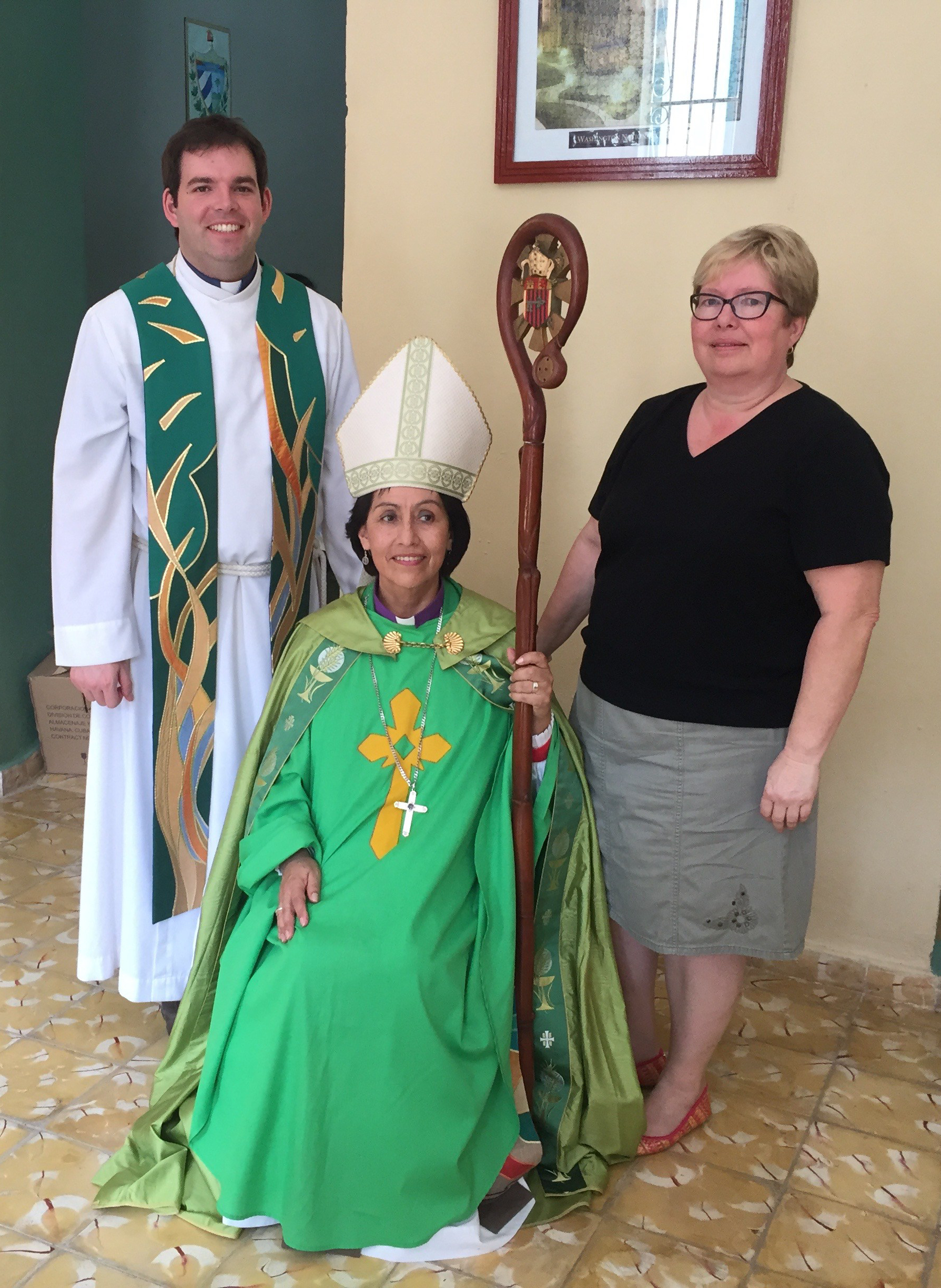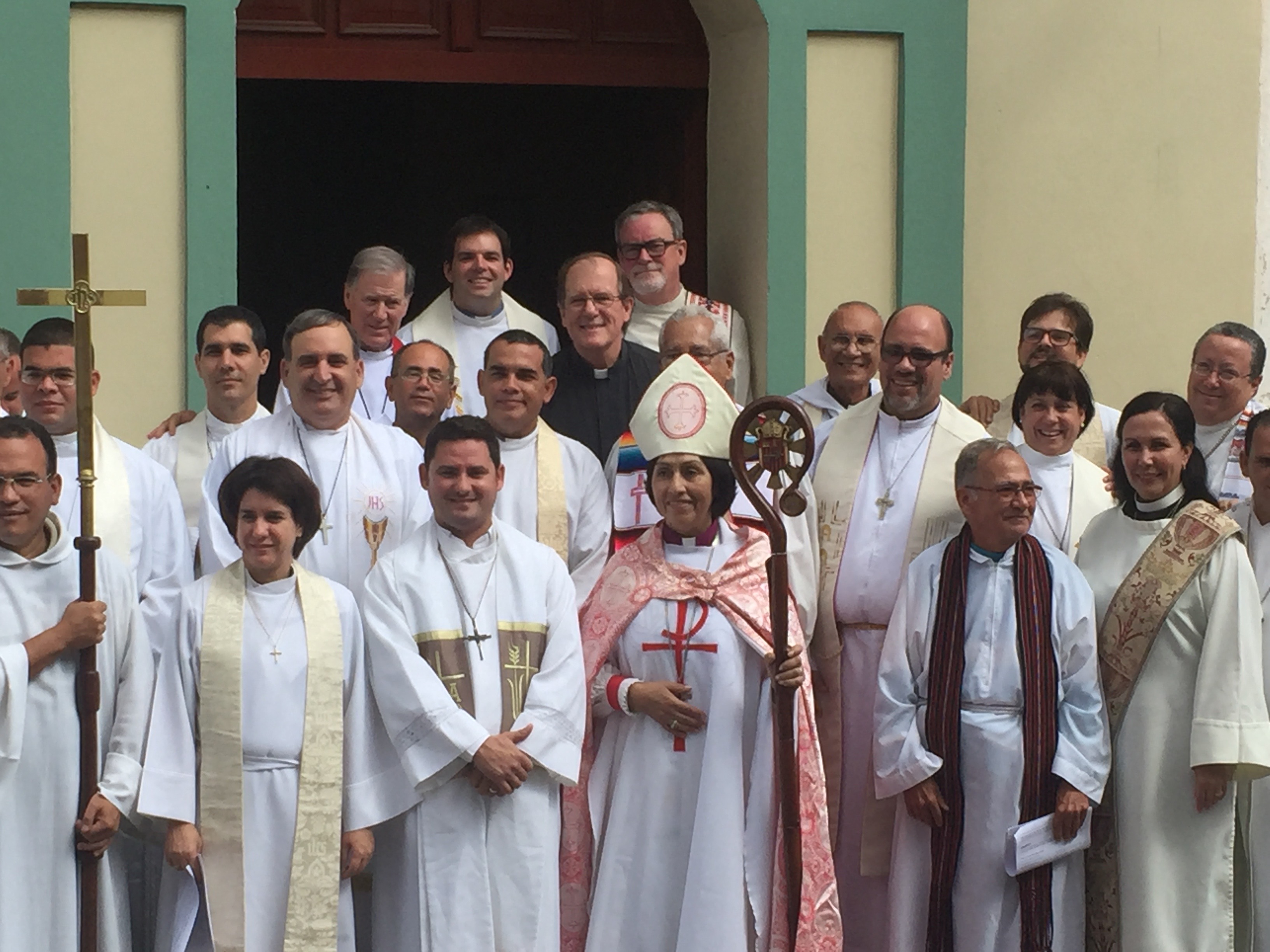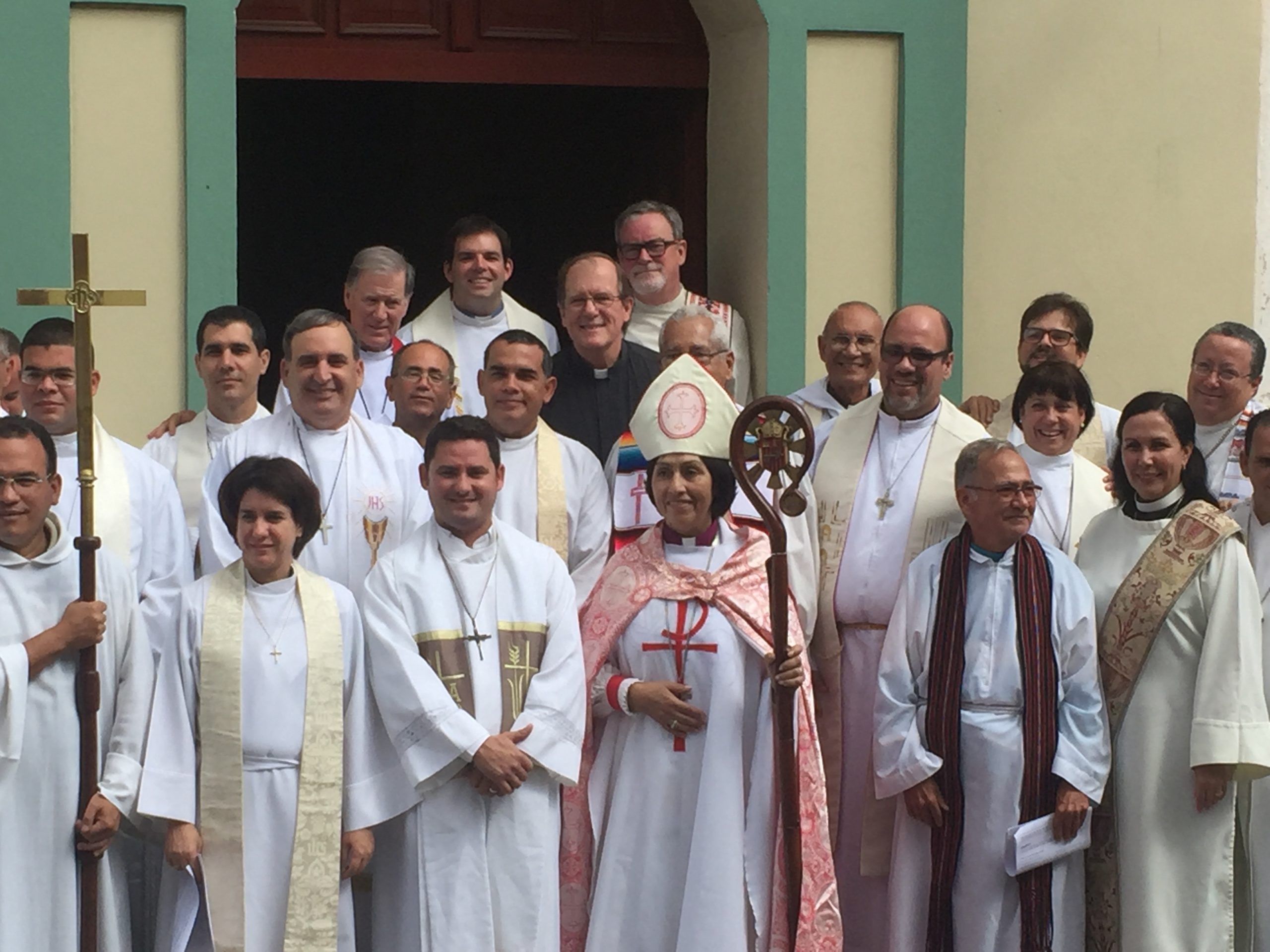by Bill Mous
In his sermon, Archbishop Fred Hiltz, President of the Metropolitan Council of Cuba, which provides oversight for the island church, remarked how lovely it was that the annual synod of the Diocese of Cuba was meeting at a Matanzas church named Fieles a Jesús or Faithful to Jesus. With roots in the city going back over 100 years, the name of the oldest Anglican congregation in Cuba provided a natural theme for the presentations and reports over the three day gathering.

Such faithfulness was abundantly evident throughout Bishop Griselda Delgado del Carpio’s expansive charge. Over the course of nearly two hours, the Bishop touched on all aspects of the diocese’s ministry, including its youth, women and family initiatives. Visiting delegates were warmly welcomed and greetings shared on behalf of Bishop Michael Bird and Niagara diocese.
A significant part of the synod involved reporting on the impacts of the diocese’s last three year strategic plan.
Formation for ministry was a significant goal for this period and the results of this initiative were impressive: seven people were ordained, 26 completed lay training at the local seminary and 223 people were equipped for community development work. In addition, several churches were renovated or built to enhance the Cuban church’s footprint in the country.
The diocesan development program, partially funded by the Primate’s World Relief and Development Fund, boasted about being able to support even more local initiatives than anticipated, including a program that helped 31 mothers return to work and improved their families’ standard of living.
Looking ahead, the synod turned its attention to a plan for 2017-2019. The diocesan vision of Cuba is to “seek to become a church that, united in diversity, celebrates, evangelizes, teaches, serves and shares God’s love.” Strategic objectives focus on enhancing pastoral care to families, promoting ministry education programs, as well as improving its stewardship and organizational capacity.

The synod also received a presentation about International Justice Camp, which brought together 25 Cubans and 25 Canadians for a week of experiential learning about fostering God’s justice and the common good. A Spanish-language video which captured the essence of the justice camp was debuted as part of the presentation.
The synod also elected members to its diocesan council and standing committee, heard reports from its various programs and passed a budget for the coming year.
Many of the parish delegations took the opportunity to share with the synod their pledge to raise more than proposed in the diocesan budget. Each public declaration of a higher offering to the diocese was met with delight by Bishop Griselda and applause from the delegates.
A much anticipated presentation was also given by the commission charged with exploring the return of the Episcopal Church of Cuba to The Episcopal Church, now that relations between the United States of America and Cuba are thawing. Many details about this proposal still need to be worked out over the coming years.
Nevertheless, many Cuban delegates to synod were adamant that the longstanding relationship with the Canadian church will remain steadfast.
The first Sunday of May is designated as a time when churches from both dioceses (Niagara and Cuba) intentionally highlight our companion diocese relationship.
Some churches offer special prayers, some take up a special collection while others highlight the ministry of the Cuban church in homilies or announcements.
While our churches minister in very different contexts, it is clear that both the dioceses of Niagara and Cuba are striving to robustly live into Archbishop Hiltz’s encouragement to seek, first and foremost, to be faithful to the life and witness of Jesus.
The Reverend Bill Mous is Director of Justice, Community and Global Ministries and Communications Coordinator for Niagara Diocese.

Disability Theology and it’s Promise for our Church